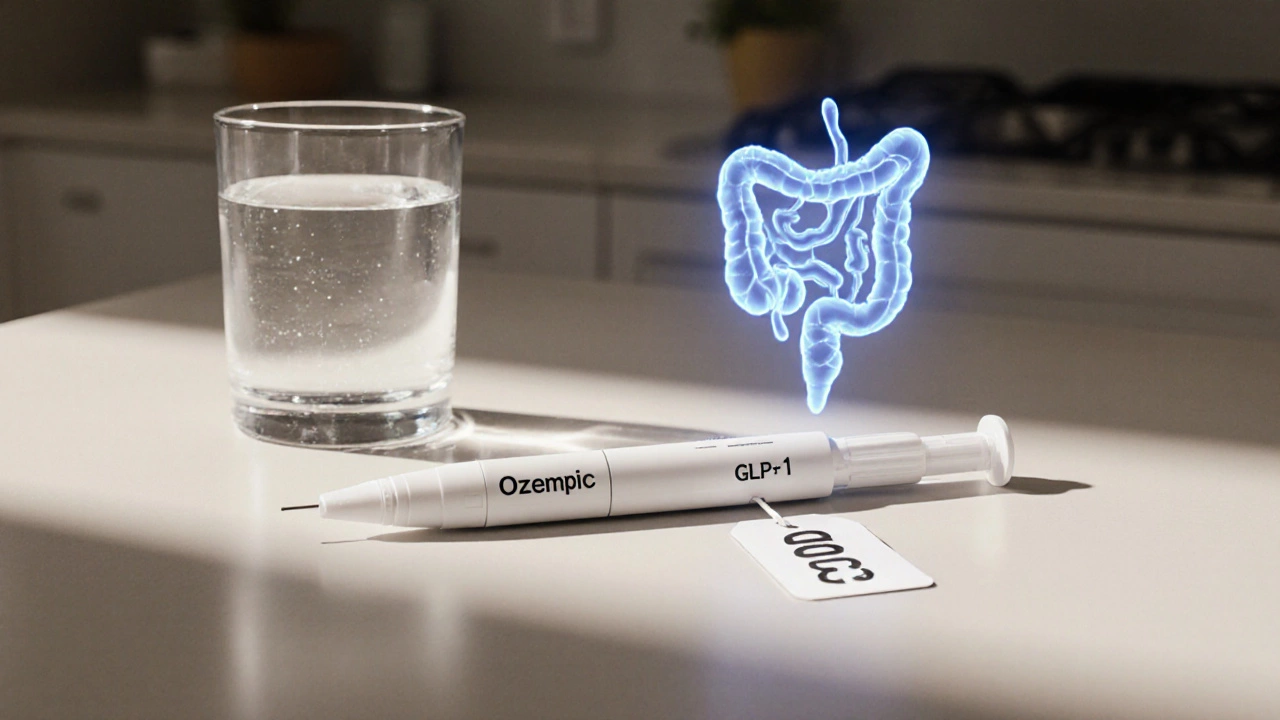GLP-1 Alternatives: Practical Options for Weight Loss and Diabetes Management
When talking about GLP-1 alternatives, any medication, therapy, or lifestyle change that can help with weight loss or blood‑sugar control without using GLP‑1 receptor agonists. Also known as non‑GLP‑1 weight‑loss options, they become important when cost, side effects, or personal preference make the original drugs less appealing.
One of the most common substitutes is Metformin, an oral diabetes medicine that improves insulin sensitivity and can aid modest weight loss. Another widely discussed group is SGLT2 inhibitors, drugs that help the kidneys flush out excess sugar, often leading to both lower blood‑glucose and some weight reduction. A third option is DPP‑4 inhibitors, agents that prolong the action of natural incretins, offering glycemic control with a lower risk of nausea compared to GLP‑1 agonists. These three alternatives each bring distinct attributes: Metformin works by cutting hepatic glucose production, SGLT2 inhibitors act at the kidney, and DPP‑4 inhibitors tweak the hormone pathway.
Why Look Beyond GLP‑1 Drugs?
People often switch because GLP‑1 prescriptions can be pricey in India, and insurance coverage is limited. Side effects like stomach upset or occasional pancreatitis also push some users to explore gentler routes. When you compare the alternatives, you’ll notice clear semantic connections: GLP‑1 alternatives encompass Metformin, SGLT2 inhibitors, and DPP‑4 inhibitors; Metformin reduces hepatic glucose output, which lowers blood‑sugar spikes; SGLT2 inhibitors increase urinary glucose excretion, supporting weight loss and blood‑pressure reduction. Besides medication, lifestyle changes—regular exercise, balanced meals, and adequate sleep—are essential companions to any drug choice.
For many, the decision also involves looking at other non‑drug options. Bariatric surgery, for instance, is a surgical alternative that can achieve dramatic weight loss but comes with its own set of risks and recovery time. Herbal supplements like green tea extract or cinnamon are sometimes tried, yet they lack robust clinical evidence and may interact with prescribed meds. Insulin therapy remains the backbone for type 1 diabetes and advanced type 2 cases, but it does not directly replace GLP‑1’s appetite‑suppressing effect.
When you weigh these choices, consider three key factors: efficacy, safety, and cost. Metformin is cheap and well‑studied, making it a first‑line option for many with type 2 diabetes. SGLT2 inhibitors tend to be pricier but can improve heart‑failure outcomes—something GLP‑1 drugs also target, but from a different mechanism. DPP‑4 inhibitors sit in the middle, offering modest weight impact with minimal gastrointestinal upset.
Below you’ll find a curated set of articles that dive deeper into each of these alternatives, plus practical tips on combining meds with diet, managing side effects, and navigating insurance coverage in India. Whether you’re hunting for a budget‑friendly pill, a safer alternative for your stomach, or a holistic plan that blends medicine with lifestyle tweaks, the posts ahead give you the facts you need to decide.
Ready to explore the details? Scroll down to discover how Metformin compares to newer drugs, what SGLT2 inhibitors can do for heart health, and how DPP‑4 blockers fit into a balanced diabetes regimen. Each article breaks down the science, real‑world costs, and actionable steps so you can pick the path that works best for you.





